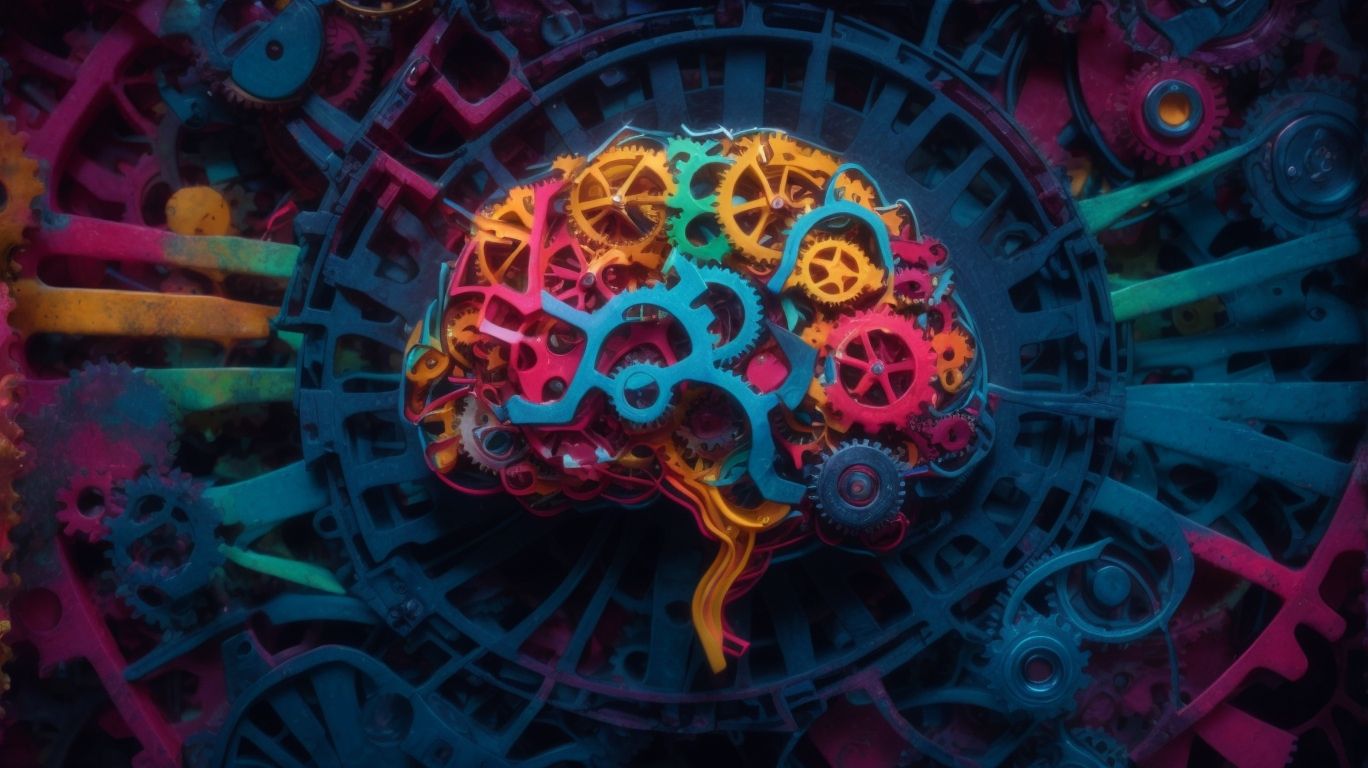Continuous Development Psychology is a fascinating field that delves deep into the various theories and frameworks that shape our understanding of human development. From Piaget’s Theory of Cognitive Development to Bandura’s Social Learning Theory, these theories offer valuable insights into how individuals grow and evolve over time.
In this article, we will explore the key theories of continuous development, the framework that underpins this branch of psychology, and how it impacts childhood development. We will discuss the practical applications of continuous development psychology in areas such as education, parenting, and therapy. Get ready to dive into the world of continuous development psychology and discover its implications for human growth and learning.
Contents
- 1 What is Continuous Development Psychology?
- 2 What are the Theories of Continuous Development?
- 3 What is the Framework for Continuous Development Psychology?
- 4 How Does Continuous Development Psychology Impact Childhood Development?
- 5 What are the Practical Applications of Continuous Development Psychology?
- 6 Frequently Asked Questions
- 6.1 What is continuous development psychology?
- 6.2 What are some key theories in continuous development psychology?
- 6.3 How do these theories contribute to our understanding of human development?
- 6.4 What are the main differences between continuous and discontinuous development?
- 6.5 How can continuous development psychology be applied in practical settings?
- 6.6 What are some criticisms of continuous development psychology?
What is Continuous Development Psychology?
Continuous Development Psychology refers to the ongoing process of psychological growth, encompassing changes in behavior, cognition, and social interactions that occur continuously throughout an individual’s lifespan.
These changes are influenced by a complex interplay between nature and nurture, where genetic predispositions interact with environmental experiences to shape an individual’s development. This dynamic process means that as individuals grow and mature, their cognitive and social behaviors are continually evolving in response to the environment around them.
Factors such as family dynamics, cultural influences, educational opportunities, and societal norms all play a role in shaping the trajectory of psychological development over time. This interaction between genetic factors and external influences highlights the importance of understanding the holistic nature of human growth and the multifaceted ways in which individuals adapt to their surroundings.
What are the Theories of Continuous Development?
The Theories of Continuous Development encompass various perspectives on child development, including Piaget’s cognitive stages, Vygotsky’s socio-cultural theory, Freud’s psychosexual stages, Erikson’s psychosocial theory, Bowlby’s attachment theory, and Bandura’s social learning theory.
Each of these theorists has made significant contributions to our understanding of how children develop cognitively, socially, and emotionally.
- For instance, according to Piaget, children progress through four main stages of cognitive development: the sensorimotor stage, preoperational stage, concrete operational stage, and formal operational stage. These stages highlight how children acquire knowledge and understanding of the world around them through adaptation, assimilation, and accommodation.
- Vygotsky, on the other hand, emphasized the role of social interactions and cultural influences in a child’s development. He introduced concepts such as the zone of proximal development and scaffolding, underscoring the importance of collaborative learning and guidance in cognitive growth.
Piaget’s Theory of Cognitive Development
Piaget’s Theory of Cognitive Development outlines distinct stages of cognitive growth, starting from sensorimotor intelligence in infants to formal operational thinking in adolescents and adults.
In the sensorimotor stage, which typically lasts from birth to around two years old, children learn about the world through their senses and actions. They develop object permanence, understanding that objects continue to exist even when they are out of sight.
Moving on to the preoperational stage from ages two to seven, symbolic thinking emerges, but logical reasoning is still limited.
Next, in the concrete operational stage from around seven to eleven years old, children start to think more logically about concrete events and understand conservation.
The formal operational stage from age eleven onwards, involves abstract thinking and hypothetical reasoning, enabling adolescents and adults to solve complex problems and think about possibilities.
Vygotsky’s Sociocultural Theory
Vygotsky’s Sociocultural Theory emphasizes the role of social interactions and cultural influences in cognitive development, highlighting the zone of proximal development as the space where learning occurs through social contact and guidance.
In this theory, the zone of proximal development refers to the range between what a learner can accomplish independently and what can be achieved with the support of a more knowledgeable individual.
According to Vygotsky, this zone is crucial for learning as it allows learners to tackle tasks slightly above their current level, leading to cognitive advancement.
The social aspect is paramount, as interactions with peers, teachers, or mentors provide scaffolding and enable learners to reach their full potential.
Erikson’s Psychosocial Theory delineates eight stages of lifespan development, each marked by specific developmental conflicts that influence personality growth and identity formation.
Beginning with infancy, the first stage – Trust vs. Mistrust, lays the foundation for future relationships and sense of security. This is followed by Autonomy vs. Shame and Doubt during toddlerhood, where children develop independence and self-confidence.
In preschool years, Initiative vs. Guilt emerges, shaping a sense of purpose and direction. Industry vs. Inferiority in childhood focuses on competence and mastery. Adolescence presents Identity vs. Role Confusion, fostering self-discovery and acceptance.
Young adulthood involves Intimacy vs. Isolation, forming deep connections and relationships. Middle adulthood grapples with Generativity vs. Stagnation, contributing to a sense of legacy and productivity.
In later life, Integrity vs. Despair brings reflection and wisdom, leading to acceptance of life experiences and completeness.
Bandura’s Social Learning Theory
Bandura’s Social Learning Theory posits that individuals learn through observational learning, where behavior is reinforced or discouraged based on the consequences observed in others.
This theory suggests that individuals learn not only through direct experience but also by observing the actions and outcomes of those around them. By observing others receiving rewards or punishments for specific behaviors, people are more likely to adopt or refrain from those behaviors themselves. Observational learning can significantly impact one’s behavior and attitudes in various situations, as individuals internalize the observed outcomes and adjust their actions accordingly.
What is the Framework for Continuous Development Psychology?
The Framework for Continuous Development Psychology examines key debates such as nature vs nurture, continuity vs discontinuity, and stability vs change, while considering the intertwined influences of biological, genetic, psychosocial, and cultural factors on development.
When diving into the nature vs nurture debate, psychologists explore the extent to which genetic inheritance (nature) and environmental factors (nurture) shape an individual’s traits and behaviors. On the continuum of developmental processes, theorists are divided between perspectives that emphasize gradual, quantitative changes (continuity) and those that highlight abrupt, qualitative shifts (discontinuity). The dynamic balance between stability and change in psychological growth underscores how individuals maintain certain personality traits and behaviors over time, while also adapting and evolving in response to diverse environmental influences.
Nature vs. Nurture
The age-old debate of Nature vs. Nurture revolves around the contrasting influences of hereditary factors and environmental experiences on individual development and behavioral outcomes.
While genetic predispositions lay the groundwork for an individual’s potential, external influences play a crucial role in how these inherent traits manifest in real-world scenarios.
Research indicates that the interplay between genetics and environment is intricate, with neither factor acting in isolation. Factors such as upbringing, education, socio-economic status, and peer interactions all contribute to the development of cognitive, emotional, and social behaviors. This dynamic interaction underscores the complexity of human development and highlights the need for a holistic understanding of nature and nurture in shaping individual characteristics.
Continuity vs. Discontinuity
The perspective of Continuity vs. Discontinuity in development posits varying theories on whether growth occurs as a continuous, gradual process or as distinct, discontinuous stages marked by qualitative shifts in behavior and cognition.
This debate has been a central focus in developmental psychology, with proponents of continuity emphasizing the idea that development is a smooth, ongoing process without clear-cut stages. According to this view, changes are incremental, building upon existing skills and knowledge.
On the other hand, supporters of discontinuity argue that development unfolds in distinct stages, characterized by unique behaviors and thought patterns. The psychological growth is seen as a series of transformations rather than a gradual accumulation of abilities.
Stability vs. Change
The dynamic interplay between Stability vs. Change in development underscores the balance between enduring traits and adaptive modifications in behavior, cognition, and social interactions throughout the lifespan.
Individuals navigate the delicate equilibrium of maintaining psychological stability while also embracing growth and evolution. This coexistence of stability and change allows for the preservation of core characteristics while enabling adjustments to occur in response to various life experiences and challenges. Developmental processes involve an intricate dance between continuity and transformation, where personal identity and values provide a foundation for growth, yet remain flexible enough to incorporate new insights and perspectives.
How Does Continuous Development Psychology Impact Childhood Development?
Continuous Development Psychology profoundly influences childhood development by shaping physical maturation, cognitive abilities, social interactions, and emotional well-being from infancy through adolescence.
Understanding the impact of continuous development theories on childhood growth involves recognizing the intricate ways in which psychological processes contribute to various milestones.
For instance, cognitive development plays a key role in a child’s ability to problem-solve, reason, and understand complex concepts. Emotional development guides how children manage their feelings, interact with others, and cope with challenges.
Physical Development
Physical Development in children encompasses the biological, genetic, and neurological changes that occur as they progress through various developmental stages, influencing motor skills, sensory perceptions, and overall well-being.
One of the key aspects of physical growth in children is the genetic foundation, which shapes their growth trajectory from an early age. Genes play a crucial role in determining a child’s height, weight, and overall body proportions.
Additionally, neurological factors also significantly influence physical development, impacting the maturation of the brain and nervous system. This intricate interplay between genetics and neurology lays the groundwork for the acquisition of motor skills, sensory integration, and the refinement of bodily systems throughout childhood.
Cognitive Development
Cognitive Development in children involves the progressive enhancement of cognitive abilities, influenced by theories such as Piaget’s stages, Vygotsky’s sociocultural perspective, Freud’s psychosexual theory, and Bandura’s social learning approach.
Theorists like Piaget emphasized the importance of children constructing knowledge through active exploration and experience, progressing through sensorimotor, preoperational, concrete operational, and formal operational stages.
Vygotsky’s sociocultural theory highlighted the role of social interactions and cultural context in shaping cognition, suggesting that children learn through social cooperation and communication.
Freud’s psychosexual theory focused on the influence of early childhood experiences on personality development, asserting that unresolved conflicts in each psychosexual stage can impact cognitive growth and behavioral patterns.
Bandura’s social learning approach emphasized observational learning, where children acquire cognitive skills by observing and imitating others, impacting their problem-solving abilities and understanding of the world.
Social and Emotional Development
Social and Emotional Development in children involves the formation of attachments, the development of self-identity, and the navigation of psychosocial challenges outlined by theorists like Bowlby and Erikson, influencing resilience and emotional well-being.
Secure attachments play a crucial role in providing a sense of safety and security for children, enabling them to explore the world and form healthy relationships. Identity formation is a complex process that involves understanding one’s unique characteristics, values, and beliefs, shaping the individual’s sense of self. By successfully resolving developmental conflicts, children develop essential coping mechanisms and emotional regulation skills, contributing to their overall emotional resilience and well-being.
What are the Practical Applications of Continuous Development Psychology?
Continuous Development Psychology offers practical applications in education, parenting, and therapeutic interventions by applying theories of growth, learning, and behavioral change to support optimal development across the lifespan.
For education, implementing continuous development theories involves creating dynamic learning environments that cater to individual students’ needs, encouraging lifelong learning, and fostering a growth mindset among learners.
In parenting, these theories can guide caregivers in understanding the importance of providing consistent support, offering developmentally appropriate challenges, and establishing secure attachments to promote healthy child development.
When applied in therapeutic settings, continuous development theories help professionals tailor interventions to each individual’s unique growth trajectory, facilitating healing and personal growth.
Education
In the realm of Education, the principles of Continuous Development Psychology inform teaching practices that cater to diverse learning modalities, foster cognitive processes, and support students’ holistic growth and academic success.
By embracing these foundational principles, educators can create inclusive learning environments where each student’s unique needs are met. Understanding and applying this theory enables teachers to adapt instructional strategies to cater to individual learning styles, thus maximizing comprehension and retention. This approach not only facilitates academic achievement but also fosters a deep sense of give the power toment and engagement among students.
Parenting
Parenting practices guided by Continuous Development Psychology focus on cultivating secure attachments, promoting positive behavioral growth, and facilitating meaningful social interactions to nurture children’s emotional resilience and psychological well-being.
In the context of secure attachments, parents can emphasize responsiveness, consistency, and sensitivity in their interactions with their child. By being attuned to their child’s needs and providing a safe and nurturing environment, parents can create a secure base from which their child can explore the world.
To reinforce positive behaviors, parents can employ strategies such as positive reinforcement, setting clear expectations, and modeling desired behaviors themselves. By praising effort, celebrating achievements, and offering constructive feedback, parents can help their child develop a strong sense of self-esteem and self-efficacy.
Encouraging social interactions involves providing opportunities for children to engage with peers, family members, and other supportive adults. By fostering connections and promoting cooperation, parents can help their child develop essential social skills, such as empathy, communication, and conflict resolution.
Therapy and Counseling
Therapeutic interventions grounded in Continuous Development Psychology aim to address cognitive development, modify maladaptive behaviors, and enhance emotional resiliency through tailored counseling approaches that support individuals in navigating developmental challenges.
Therapists and counselors carefully apply the principles of Continuous Development Psychology to design interventions that facilitate progressive growth and personal development. By integrating various psychological theories and evidence-based practices, professionals in the field work collaboratively with clients to explore underlying cognitive patterns and behavioral responses. This proactive approach fosters a deeper understanding of emotional reactions and equips individuals with the necessary skills to manage challenges effectively. Through continuous evaluation and adjustment of treatment plans, therapists create a supportive environment for clients to navigate through psychological issues while fostering resilience and emotional strength.
Frequently Asked Questions
What is continuous development psychology?
Continuous development psychology is an approach to understanding human development that focuses on the continuous and dynamic nature of growth and change throughout the lifespan.
What are some key theories in continuous development psychology?
Some key theories in continuous development psychology include Piaget’s stages of cognitive development, Erikson’s psychosocial stages, and Vygotsky’s sociocultural theory.
How do these theories contribute to our understanding of human development?
These theories provide frameworks for understanding how individuals develop physically, cognitively, and socially throughout their lives, and the factors that influence their development.
What are the main differences between continuous and discontinuous development?
Continuous development refers to gradual and continuous changes over time, while discontinuous development refers to distinct and abrupt changes at specific stages. Continuous development theories propose that development is a smooth and ongoing process, while discontinuous development theories suggest that development occurs in distinct stages.
How can continuous development psychology be applied in practical settings?
Continuous development psychology can be applied in educational, clinical, and social settings to understand and support individual development. It can also inform interventions and programs that promote healthy development and well-being.
What are some criticisms of continuous development psychology?
Some criticisms of continuous development psychology include its emphasis on universal stages and sequences of development, which may not account for individual differences and cultural influences. Additionally, some argue that it neglects the impact of environmental factors on development.




